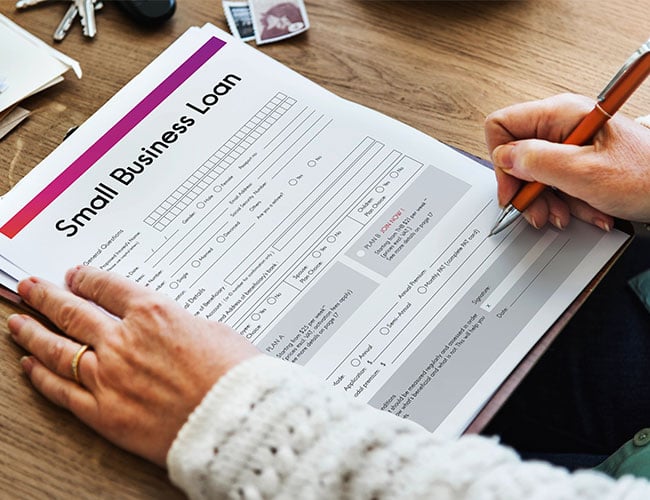Scura, Wigfield, Heyer, Stevens & Cammarota Blog
- Blog
Can You Discharge Small Business Administration (SBA) Debt in Bankruptcy?

Small Business Administration (SBA) loans are no different than other debt and are dischargeable in business bankruptcy. An individual that has personally guaranteed a debt may also discharge an SBA loan. A misperception exists that SBA loans are not dischargeable. SBA loans are entitled to no special priority under the Bankruptcy Code. SBA loans are backed by the government so that when there is a default the loan is insured as to the bank that gave the loan to the borrower. Because the loan is insured, however, does not mean that the borrower cannot wipe it out in a bankruptcy.
Determine What Assets are Secured by the SBA Loan
You need to review the SBA paperwork you received at the time you took out your SBA loan. Many times, the lender will take out a blanket lien against all of the debtor's property. The lien may only be against the business assets, but may also be a lien against personal assets of an individual involved in the business. For example, the SBA may file a UCC-1 financing statement against business assets and then also a mortgage lien against the business owner’s individual house or other assets.
An SBA loan will usually involve personal guarantees so the individuals of the business will typically be responsible. Still, the individual can wipe out their personal guarantee of the loan. If the SBA obtained a lien against the individual’s assets, the individual can wipe out the debt as to them personally but the SBA can still foreclose on assets upon which it has a lien. You have to explore all strategies. One strategy, by way of illustration, is to file a personal bankruptcy, discharge the debt personally and then negotiate with the SBA for a discounted payoff of the lien on personal property of the borrower. The SBA will negotiate a lower settlement depending upon the assets its lien is secured by and the situation of the borrower.
You have to also analyze whether the lien can be avoided or stripped off of property when dealing with business bankruptcy. This is usually dependent upon the value of the collateral that backs up the loan. A blanket lien is not a judicial lien and will not be able to be avoided under Section 522 of the Bankruptcy Code.
Discharging SBA Loan or Paycheck Protection Program Funding in Bankruptcy Provided Under the Cares Act
Now, under the CARES Act (Coronavirus Aid, Relief, and Economic Security Act), the Paycheck Protection Program does not require personal guarantees so if your business had to file bankruptcy, you do not have to individually file bankruptcy. Under the EIDL program and other SBA loan programs, personally guarantees are typically required so you would need to file bankruptcy. The strategies to deal with the personal guarantees as described above, however, could be utilized to wipe out or negotiate on the SBA funding.
The CARES Act has also provided additional bankruptcy strategies expressly in the Act. Specifically, the CARES Act:
- Coronavirus-related payments from the federal government are excluded from income for purposes of calculating a debtor’s eligibility for Chapter 7 and Chapter 13.
- Coronavirus-related payments are not considered in determining a debtor’s disposable income for a Chapter 13 plan of reorganization.
- In Chapter 13 cases, the CARES act allows debtors who have already confirmed a plan to modify the plan, including extending their payments for seven years after their initial plan payment was due.
- Expanded the debt limit amounts for eligibility for the new Small Business Chapter 11 to 7.5 Million Dollars.
- Keep in mind that the changes apply in pending Chapter 7 and Chapter 13 cases and will be only applicable for one year from the effective date of the CARES Act.
Carefully Analyze Strategy to See If the SBA Loan Can Be Restructured or Modified in Bankruptcy
In a Chapter 11 or potentially a Chapter 13 reorganization plan, the SBA loan may be able to be restructured or modified. You have many creative tools to restructure these business loans under the bankruptcy code. Furthermore, outside of the bankruptcy or before the bankruptcy is filed a restructuring of the loan may be an option.
In a Chapter 7, if you are just trying to wipe out the SBA loan, you are certainly entitled to discharge the debt. Contact a New Jersey business bankruptcy attorney to see what options are available to best strategically deal the SBA loan.

John J. Scura III
John fights hard for his clients and tries to educate them so they understand what is going on with their particular legal problem. John has been Certified by The Supreme Court of New Jersey as a Civil Trial Attorney. Whether it is a personal injury case, bankruptcy case, litigation case or other type of matter, John wants his clients to participate in the decision making process toward solving their problem in the best way possible.
Share Article
Need Help? Contact Us Today!





Lists by Topic
- Bankruptcy (320)
- Personal Injury (95)
- Chapter 13 (52)
- Chapter 7 (50)
- Debt Management (50)
- Foreclosure (47)
- Accident (32)
- Car Accident (26)
- Chapter 11 (24)
- Business Bankruptcy (19)
- Credit (18)
- Insurance Claims (17)
- Business Law (12)
- Litigation (12)
- Employment Law (11)
- Probate and Estate Law (11)
- Damages (10)
- Medical (10)
- Product Liability (10)
- Workers Compensation (10)
- Attorney (9)
- Consumer Bankruptcy (9)
- Commercial & Residential Real Estate (6)
- Slip and Fall (6)
- Contracts (5)
- Premises Liability (5)
- Repossession (5)
- wrongful death (5)
- Video | Bankruptcy (4)
- Bankruptcy Cost (3)
- Corporate Litigation (3)
- Trial Law (2)
- student loans (2)
- tax (2)
- Attorney Fees (1)
- COVID-19 (1)
- Certified Civil Trial (1)
- Dog Bites (1)
- News (1)
- Relocation Assistance (1)

